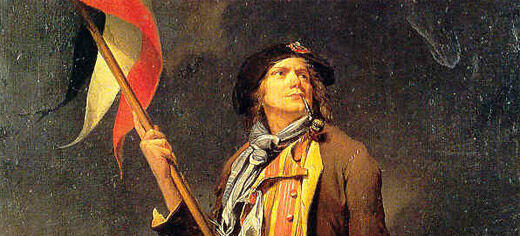
Is aristocratic pornography or obscure political theory more likely to start a revolution? A new database developed at the University of Leeds will shed light on this and other historical questions.
The French Book Trade in Enlightenment Europe project has created a vast database of the trade of the leading Swiss publishing house, the Société Typographique de Neuchí¢tel (STN), between 1769 and 1794.
The database tracks the passage of almost half a million copies of nearly 4,000 titles across Europe, enabling users to uncover the dissemination of ideas in the years before the French Revolution of 1789.
The STN’s biggest markets were in France and Switzerland, each of which accounted for about a third of the company’s sales. Because the STN was based outside of conservative France it could sell books that others dared not touch, including illicit philosophic, irreligious, pornographic and scandalous texts.
The database allows users to search by book title, keyword, genre, location and by customer. Such an extensive approach means answers can be found for many questions, and each search tells its own story.
“We are now, for the first time, able to identify and map the reading preferences of ordinary French readers in the run up to their revolution and compare their tastes to those of French-language readers elsewhere in Europe,” said Professor Burrows, from the University’s School of History, who led the project.
‘For example, it’s possible to confirm claims that eighteenth-century Frenchmen (and possibly women) had a marked taste for libertine and erotic works. They were reading more and harder pornography than their counterparts elsewhere in Europe,” added Professor Burrows.“They also read scandalous works about their kings and their mistresses. But, contrary to received opinion, before the revolution, there were few sales of books that could be thought of as ‘political pornography’.”
“In fact, what is most notable, is the prevalence in the STN’s clandestine trade of philosophic enlightenment works, discussing political, religious or social themes,” added Professor Burrows.
These works contained complex ideas and some historians have suggested that they were too hard for ordinary readers to comprehend. But the database has revealed that readers devoured such works in large numbers.
The STN database can be accessed at http://chop.leeds.ac.uk/stn/ and was funded by the Arts and Humanities Research Council (AHRC).
“The STN was like an eighteenth-century Amazon with a publishing arm,” said Professor Simon Burrows.
“It sold its own works by mail order, but also sold the works of dozens of other publishers to clients based in Lisbon and Moscow, Dublin and Naples and hundreds of towns in between.”
For more information
Professor Burrows is available for interview. Contact: University of Leeds Communications & Press Office: Tel +44 (0)113 343 4031, email pressoffice@leeds.ac.uk
About the Arts and Humanities Research Council (AHRC)
Each year the AHRC provides approximately £100 million from the Government to support research and postgraduate study in the arts and humanities, from languages and law, archaeology and English literature to design and creative and performing arts. In any one year, the AHRC makes approximately 700 research awards and around 1,100 postgraduate awards. Awards are made after a rigorous peer review process, to ensure that only applications of the highest quality are funded. The quality and range of research supported by this investment of public funds not only provides social and cultural benefits but also contributes to the economic success of the UK. http://www.ahrc.ac.uk/